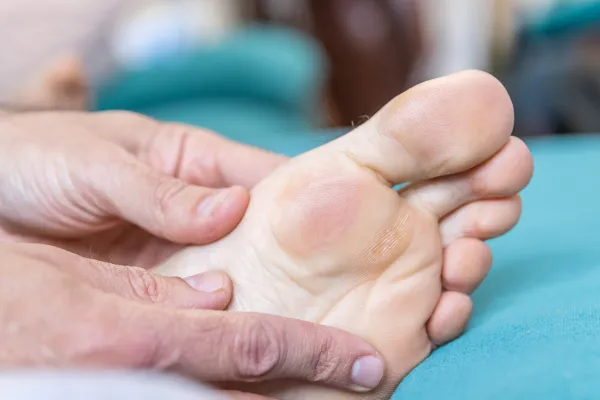
When a Blister Becomes a Big Problem: Foot Sores in Diabetics
For most people, a blister on the foot is a minor inconvenience. But for someone with diabetes, that same blister can turn into a serious—and even limb-threatening—problem. At American Surgeons Group in South Chicago, we specialize in diabetic wound care, helping patients identify and treat foot sores before they spiral into major complications.
In this blog, we’ll explore why diabetics are at higher risk for foot wounds, how to recognize the warning signs, and what you can do to protect your feet and your health.
Why Diabetes Makes Foot Sores So Dangerous
Diabetes impacts the body in many ways, but two key complications make foot sores especially risky:
Peripheral Neuropathy
Many diabetics experience nerve damage in the feet, which can lead to numbness or tingling. This means that small cuts, blisters, or pressure points often go unnoticed because they don’t cause pain.Poor Circulation
Diabetes can also lead to reduced blood flow, especially in the lower legs and feet. Without good circulation, the body has a harder time delivering oxygen and nutrients to the wound site—slowing down healing and increasing the risk of infection.
These two factors combined make it easy for a simple blister to become a chronic wound, or even lead to amputation if not properly treated.
Common Causes of Foot Sores in Diabetics
Ill-fitting shoes that rub and cause blisters or pressure ulcers
Unnoticed injuries from walking barefoot
Fungal infections that break down the skin
Dry skin and cracks, especially around the heels
Ingrown toenails or improperly trimmed nails that create wounds
Even a small issue can become a gateway for bacteria, leading to infection, ulceration, and deeper tissue damage.
What a Diabetic Foot Sore Looks Like
Not all foot sores are immediately alarming, especially in the early stages. Watch out for:
A reddened area that doesn’t fade or worsens over time
A blister, scrape, or cut that isn’t healing normally
A callus with a soft, dark center—this may indicate an ulcer underneath
Any discharge, odor, or swelling
Changes in skin color or temperature
If you see any of these signs, don’t wait. Early treatment is key to preventing more serious complications.
How American Surgeons Group Treats Diabetic Foot Wounds
At American Surgeons Group, we offer advanced diabetic wound care in South Chicago with a focus on limb preservation and patient education. Here's what you can expect:
1. Comprehensive Evaluation
We perform a full foot exam and assess your vascular health, nerve function, and wound severity. Diagnostic tests help us create a customized treatment plan.
2. Wound Cleaning and Debridement
Removing dead or infected tissue is crucial to promote healing. This process, called debridement, is done with precision and care by our podiatric team.
3. Infection Management
If an infection is present, we may prescribe oral or topical antibiotics. In more severe cases, minor surgical intervention might be necessary to prevent the spread.
4. Pressure Offloading
We use special footwear, padding, or orthotic devices to reduce pressure on the sore and prevent it from getting worse.
5. Ongoing Monitoring and Care
Healing a diabetic foot sore takes time and vigilance. Our team monitors progress closely with regular follow-ups and adjusts care as needed.
Prevention: Your First Line of Defense
While expert care is available, preventing foot sores is always better than treating them. Here are simple steps every diabetic should follow:
Inspect your feet daily for cuts, blisters, redness, or swelling
Wash and moisturize your feet—but avoid putting lotion between the toes
Trim your toenails carefully or let a podiatrist do it
Wear clean, well-fitting shoes and never walk barefoot
Manage your blood sugar levels to support overall circulation and healing
Schedule regular foot checkups with a podiatrist
You Don’t Have to Do This Alone
If you’re living with diabetes, proactive foot care should be part of your daily routine—and having the right support system makes all the difference. At American Surgeons Group, we offer trusted diabetic wound care in South Chicago, helping patients protect their feet and preserve their mobility.
Whether you're dealing with a current foot sore or looking to prevent future problems, our team is here to guide you every step of the way.
Schedule Your Diabetic Foot Evaluation Today
Don’t let a blister become a big problem. Contact American Surgeons Group to schedule a consultation and take control of your foot health. Your feet—and your future—depend on it.
